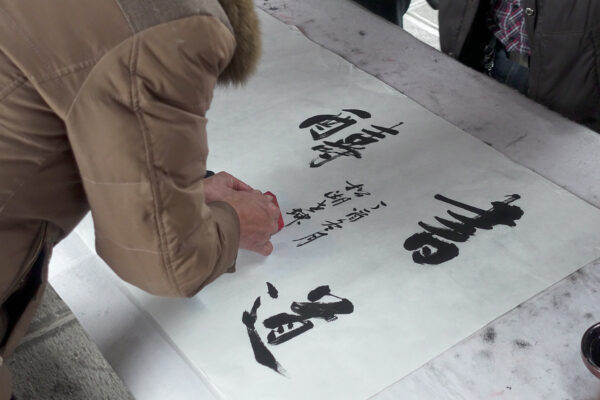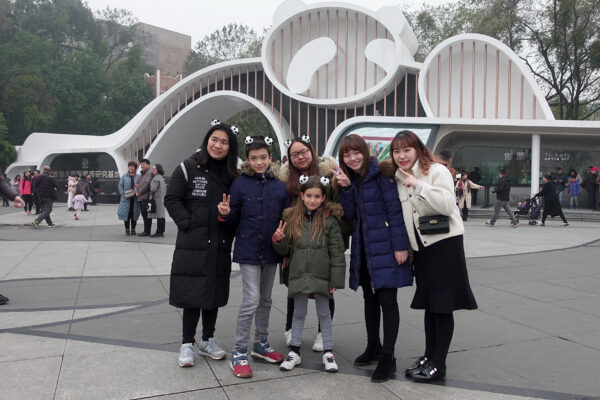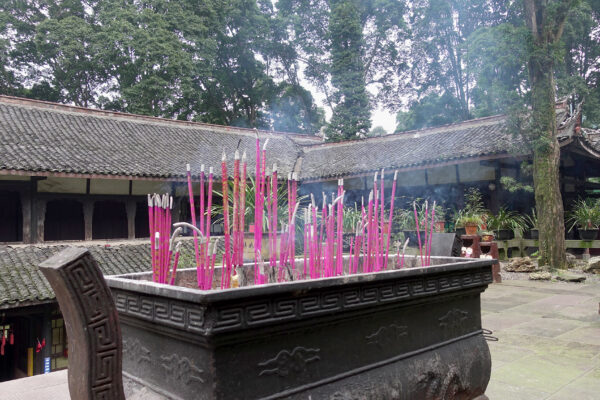Chinese culture is rich in values that have been forged over thousands of years and are fundamental in the daily lives of its citizens. These values are not only part of the national identity but also influence personal, familial, and professional relationships. Below, we explore some of the most notable values in Chinese society, presenting examples that illustrate how they manifest in daily life.
1. Respect for Elders
Respect for elders is a fundamental pillar in Chinese culture, rooted in Confucian philosophy. This value is reflected in various social and family practices.
Curious Example:
During Chinese New Year celebrations, it is traditional for young people to offer “hongbao” (red envelopes with money) to their elders. This custom not only demonstrates respect but also symbolizes good wishes for the coming year. Young people also bow to their elders during family gatherings, a gesture that underscores the importance of honor and respect in intergenerational interactions.
2. Sincere Friendship
For the Chinese, friendship is not simply a social relationship but a deep commitment involving loyalty and mutual support. The philosophy of “guanxi,” which refers to interpersonal relationships, is fundamental in this context.
Curious Example:
The “banquet” is common during gatherings of friends, where meals are shared in an atmosphere of camaraderie. During these meetings, it is customary for one friend to give a toast of gratitude, praising others for their friendship and support. This cultural practice not only strengthens friendship bonds but also allows gratitude to be expressed in a formal and affectionate way.
3. Teamwork
The value of teamwork is essential for achieving success in various areas, from school to the workplace. In China, collaboration and group cohesion are prioritized over individual interests.
Curious Example:
In schools, instead of individual competitions, group activities are organized where students must work together to solve problems or complete tasks. This dynamic fosters a spirit of unity and the concept that “everyone wins” when collaborating. In professional settings, the Chinese often refer to the idea of “tian rui” or “working together for a common goal,” reflecting how synergy is valued over individual success.
4. Responsibility
The sense of responsibility, both personal and social, is a highly emphasized value in Chinese culture. This value manifests in daily life, as well as in education and work.
Curious Example:
In primary education, Chinese children are taught to participate in cleaning and maintaining their school. This practice not only instills a sense of responsibility toward their environment but also teaches the importance of collective effort. Additionally, in the workplace, the concept of “jiu zhi” (dedication to work) is fundamental: employees are expected not only to fulfill their duties but also to commit to serving the well-being of the company and community.
5. Respect for Tradition
China is a country where tradition and modernity coexist harmoniously. The Chinese typically celebrate their traditional festivals with great devotion, reaffirming their cultural identity.
Curious Example:
The celebration of the Mid-Autumn Festival, where families gather to share mooncakes and appreciate the full moon, is a perfect example of respect for tradition. During this time, stories about Chinese mythology are told, and values like family and friendship are promoted. The act of gazing at the moon with family becomes a moment of connection and reflection.
6. Hospitality
Hospitality is a deeply rooted value in Chinese culture, where it is considered an honor to host friends and family at home. Hosts strive to provide the best possible experience for their guests.
Curious Example:
When hosting a visitor, it is common for the host to insist on offering a variety of dishes and tea, even if the guests have already eaten. This act demonstrates not only kindness but also the desire to make guests feel as comfortable and welcome as possible. Hosts often go out of their way with what they have available, and it is a tradition to expect that guests do not leave without empty plates on the table, as a sign that they have enjoyed the meal.












